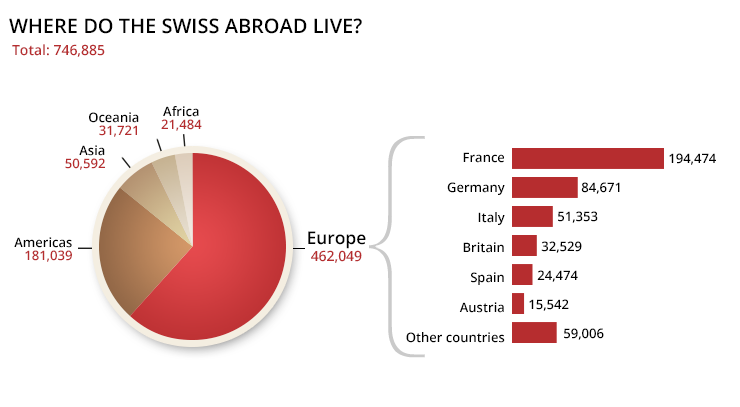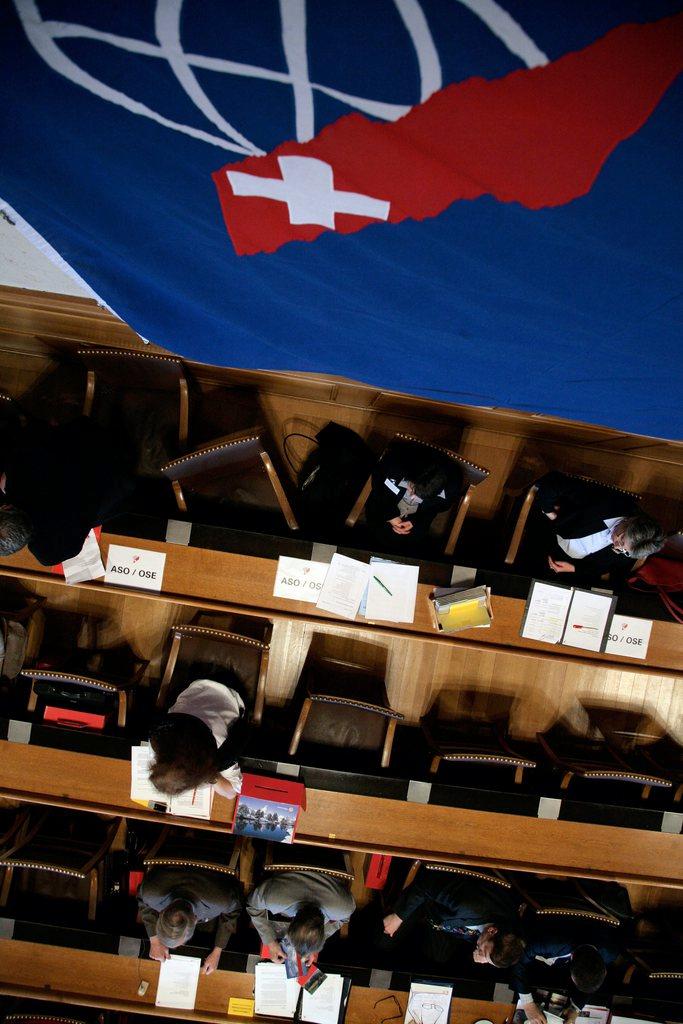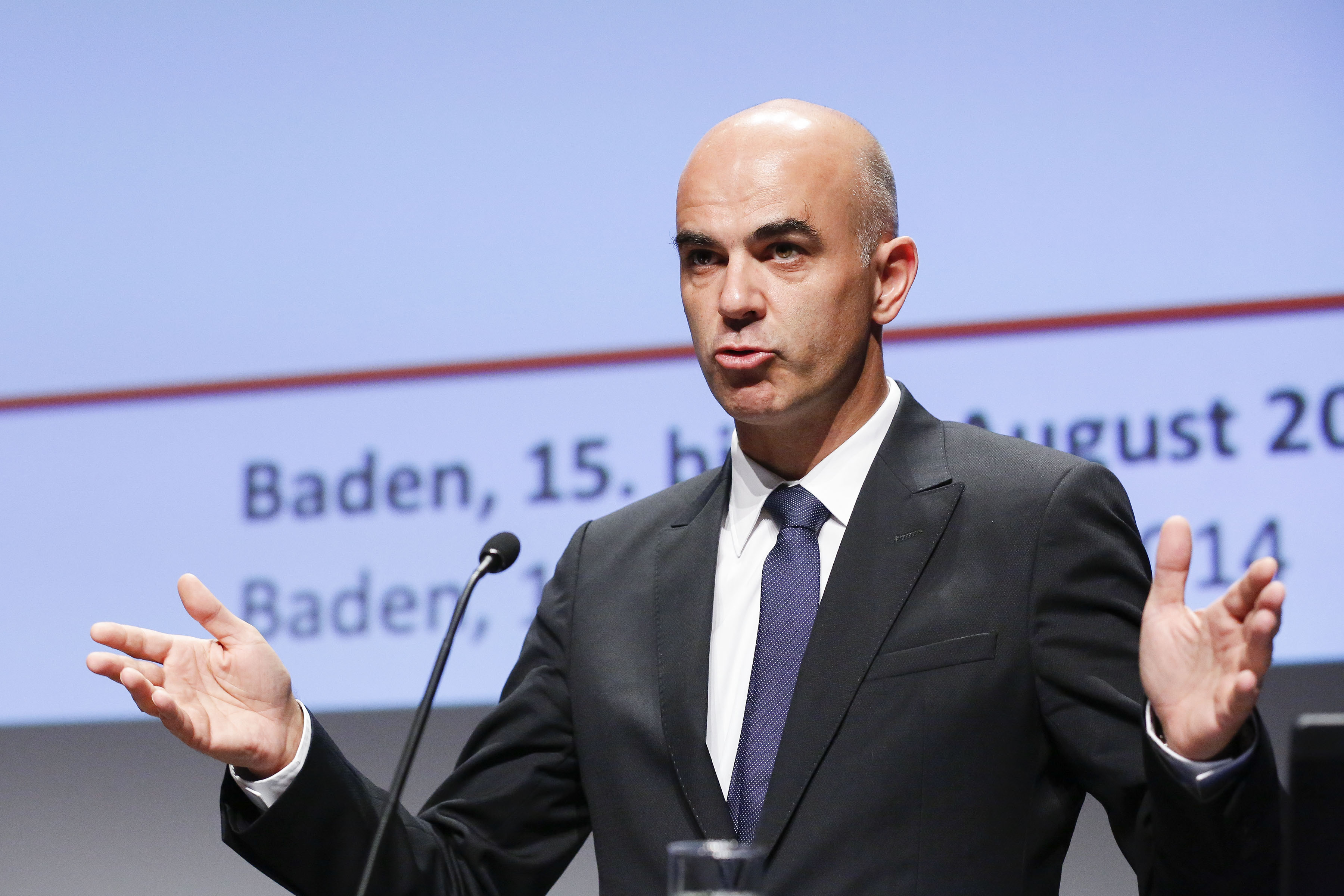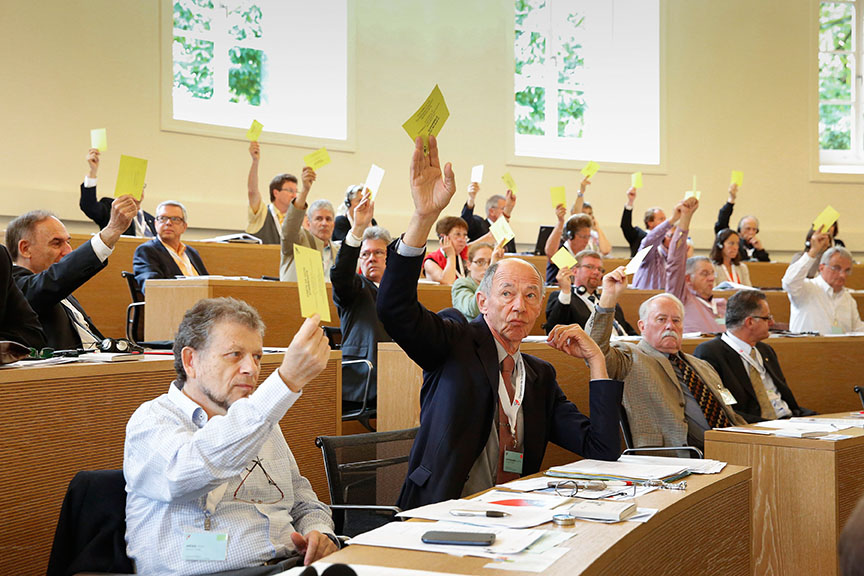Expat community launches election manifesto

The Swiss expatriate community is pushing for the promotion of electronic voting and improved postal services to facilitate participation of Swiss abroad in next October’s parliamentary elections.
At a regular meeting of the Council of the Swiss Abroad in Bern on Saturday, the more than 120 representatives unanimously approved an eight-point election manifesto, detailing the group’s demands for the political parties and candidates.
“Parliamentary elections are not a trivial matter,” said Jacques-Simon Eggly, president of the Organisation of the Swiss Abroad (OSA).
He stressed the importance of Swiss expatriates taking part in the political process to keep Switzerland’s democratic system alive.
The organisation notably wants all 26 cantons to allow their expatriates not only to able to elect parliamentarians in the House of Representatives, but also members of the Senate.
Eggly also encouraged the increasing number of expats to register. Currently about 142,000 of the 747,000-strong community can take part in votes and elections in Switzerland.

A special online platformExternal link has been created by the federal administration and parliament to inform the public about different aspects of the October 18 elections.
The OSA is planning to focus its annual congress next August in Geneva on citizenship and civic education, Eggly announced.
E-vote
Barbara Perriard of the Federal Chancellery told the assembly that long-running trials with e-voting had shown the popularity of the method with the Swiss expat community.
The 125-member assembly is part of the Organisation of the Swiss Abroad (OSA) and meets twice a year.
It is made up of representatives of Swiss clubs and associations abroad and of members of domestic institutions.
The assembly represents the interests of Swiss expatriates before the authorities and public opinion in Switzerland.
She said security aspects were key for a successful introduction of the system for the whole electorate, ensuring transparency of the procedure and upholding the principle of the secret vote.
“Security comes before speed,” she said. Over the past decade three different e-voting systems have been tested by 14 of the country’s 26 cantons.
Eggly acknowledged that progress has been made but he said more needs to be done.
“All Swiss expatriates have to be able to have access to e-voting to use their political rights. They also have to able to elect the members of the Senate by e-voting.”
He also called for tests to send documents about the elections and votes via the internet to registered expatriates to avoid serious delays in the postal services in some countries.
Bank customers
As part of the election manifesto, the OSA urged that improvements be made to allow Swiss expats to maintain an account with a Swiss bank.
Following pressure by other countries and stricter regulations, most Swiss financial institutions have made Swiss customers living overseas feel increasingly unwelcome. Several customers complained publicly about the policy.
Nevertheless, political moves to compel Post Finance, the financial unit of the state-run Swiss Post, to accept expat accounts were thrown out by parliament earlier this month.
Despite the setback, members of the Council of the Swiss Abroad were optimistic that banks will review their policy towards expat clients.
“We have to continue to draw public attention to this form of discrimination against the Swiss abroad,“ said Roland Büchel, a leading member of the council and a parliamentarian.
He said major banks would risk damaging their reputation if they refuse to follow the example of three smaller Swiss banks which started welcoming expat customers.
Mobility
The OSA election manifesto also highlights the importance of the free movement of people accord between Switzerland and the European Union.
Following Swiss voters’ approval in 2014 of a controversial proposal to re-introduce immigration quotas for EU citizens, relations with the 28-nation bloc have been strained.
The Swiss government is trying to re-negotiate the labour accord with the EU – Switzerland’s main trading partner. Brussels, however, maintains that the free movement of people principle is non-negotiable.
High on the political agenda for the OSA is the maintenance of an adequate consular network across the globe. The organisation wants the foreign ministry to cease shutting down diplomatic representations.
“Further cuts in the support for the Swiss diaspora would be irresponsible;” according to the manifesto.
At the same time, the OSA wants to extend the existing network of 17 Swiss schools abroad to boost their role as promoters of Swiss culture at an international level.
Changes
On Saturday, OSA President Eggly announced his resignation after eight years at the helm of the expat pressure group.
He said his decision to hand over the post at the Swiss Abroad Congress in Geneva in August was in line with a policy of rotating the presidency between native French and native German speakers in the organisation.
The main achievements for Eggly are parliament’s approval of a special law on the Swiss abroad and the reform of management structure of the OSA, now led by two co-directors.
The 73-year-old Eggly told swissinfo.ch he hoped the organisation will find ways to improve its credibility as a representative of the Swiss abroad community without being dragged into fights among political parties.

In compliance with the JTI standards
More: SWI swissinfo.ch certified by the Journalism Trust Initiative







You can find an overview of ongoing debates with our journalists here. Please join us!
If you want to start a conversation about a topic raised in this article or want to report factual errors, email us at english@swissinfo.ch.